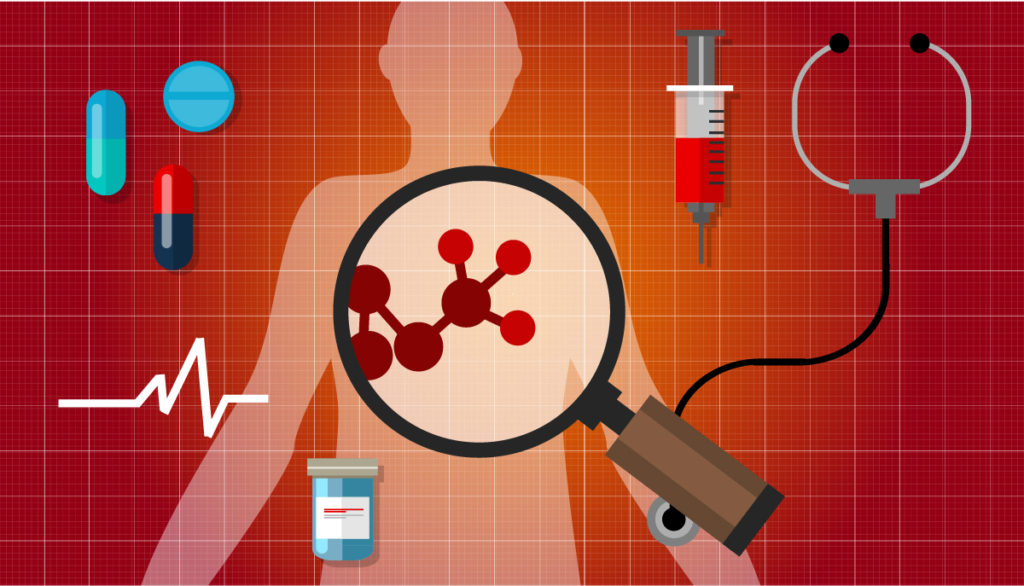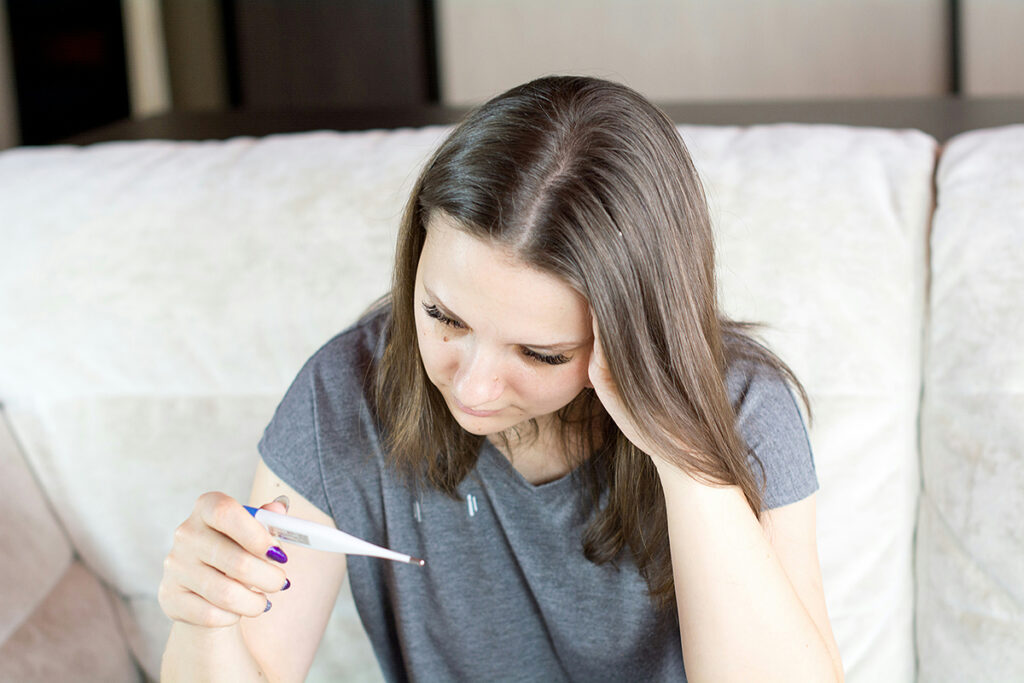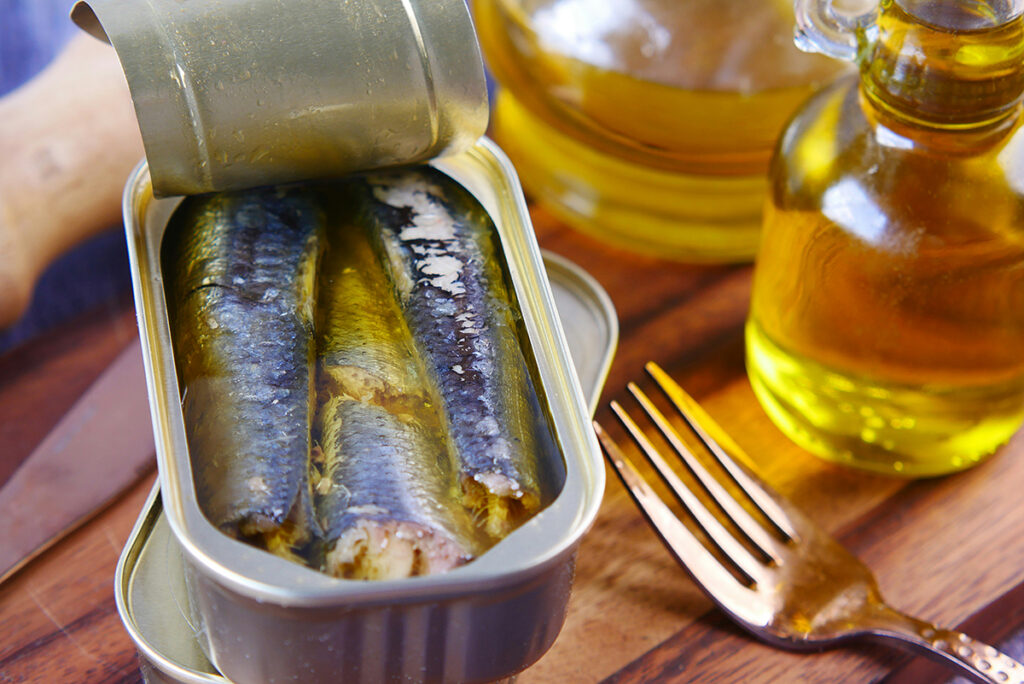About 200 microorganisms cause respiratory diseases. Evolutionarily, we have been dealing with them for a long time and have learned to resist them. Experts will tell you what you need to help the body to cope with the infection.
To share their knowledge:
- Nikolai N. Filatov – MD, Prof., corresponding member of the Russian Academy of Sciences, Deputy Director for Research at the II Mechnikov Scientific Research Institute of Vaccines and Serums
- Andrey S. Simbirtsev – MD, Ph.D., Prof., Head of State Research Institute of Highly Pure Biopreparations of the Federal Medical and Biological Agency (FMBA) of Russia (Saint Petersburg, Russia)
- Alexander L. Myasnikov – Ph.D., MD of the United States, Сhief physician of City Clinical Hospital №71 named after M. E. Radkevich (Health Department of Moscow).
The primary way to get a respiratory infection is through the nose; we inhale it. To get sick, you must meet two conditions.
First, it must not work the local immunity of the respiratory tract. Then the pathogen will enter the body.
Second, the number of invaded microorganisms should be sufficient to lead to the development of the disease. In this situation, the pathogen multiplies faster than the innate immune system has time to destroy it. The greater the number of pathogens that have entered the body, the more severe the disease’s course will be.
Сontents
- Professional tips: how to deal with SARS, flu, and coronavirus
- Tip 1: it is safer where there are few people and adequate ventilation
- Tip 2: if there are many people and there is a high risk of infection, strengthen the local immunity of the nasal mucosa and use personal protective equipment
- Tip 3: Seasonal flu vaccine can indirectly protect against other respiratory infections by stimulating the immune system
- Tip 4: When collecting a first aid kit for the cold season, it is crucial to understand what you are going to take
- Tip 5: consult a specialist before using any medications
- Readers ‘ questions
- Why do people start getting sick with acute respiratory infections and flu in the fall?
- Will there be a second wave of coronavirus? What is the unique feature of the current autumn season 2020?
- If interferon is produced inside the body, is there a risk of getting someone else’s infection, such as with blood transfusions?
- Do I need to wear gloves to protect against coronavirus?
- Can we use interferon for treatment of coronavirus, influenza or SARS?
- If an unknown virus or a new pandemic appears, can nasal interferon protect against a new disease?
- When will the COVID-19 vaccine be available, do children and young people need to be vaccinated, because they almost do not suffer from coronavirus?
- Sources
Professional tips: how to deal with SARS, flu, and coronavirus
Tip 1: it is safer where there are few people and adequate ventilation
- Alexander Myasnikov, Chief physician of City Clinical Hospital No. 71
Social distance should be maintained, 40% of detected cases of infected with coronavirus are asymptomatic.
The coronavirus is transmitted through both large drops of sputum and aerosol. Therefore, when 10 people are crammed into the elevator, it is a mockery.
In general, it is better to be outdoors than indoors.
- Nikolay Filatov, Deputy Director for Research at the II Mechnikov Scientific Research Institute of Vaccines and Serums
The premises need ventilation systems with fresh air.
When an infected person breathes, a cloud of virus-containing aerosol hangs around them. The man is gone, but the cloud remains and turns for a while. Infection occurs when the pathogen is inhaled.
Therefore, it is also desirable to disinfect the air in the premises.
Tip 2: if there are many people and there is a high risk of infection, strengthen the local immunity of the nasal mucosa and use personal protective equipment
- Alexander Myasnikov, Chief physician of City Clinical Hospital No. 71
Since COVID-19 is transmitted during the asymptomatic period, international and national recommendations indicate that everyone should wear masks. Only wear correctly: the mask should cover both the mouth and nose. If the mask is worn on the chin, it is useless.
The mask is a one-time thing, do not arrange sources of infection from it. Change your mask every three hours.
- Nikolay Filatov, Deputy Director for Research at the II Mechnikov Scientific Research Institute of Vaccines and Serums
The human body produces a universal antiviral agent — interferon-to protect against any viruses. Antiviral protection of the body is based on it. It’s only because of this substance that we didn’t die out.
When we instill an interferon-type drug, interferon-alpha-2b, into the nose, we close the airway mucosa and reliably protect the entrance gate for infection. That is because interferon is part of our immune system. Interferon-alpha-2b supplements the body’s interferon and boosts the innate immune system. If you put interferon in your nose, you get protection.
For example, a medical worker in the red zone for 12 hours receives dozens of infectious doses of coronavirus during the shift. Even an ideal immune system cannot withstand such a load — a person will get sick.
World statistics are sad: 13% of doctors have COVID-19. They are ill, and not just asymptomatic carriers.
Recently, our colleagues from Cuba came to us to exchange experience. It turns out that in Cuba, among the doctors in the red zones of COVID-19 departments, there are no cases. There, all doctors are given nasal prophylaxis with interferon alpha-2b.
- Andrey Simbirtsev, Head of State Research Institute of Highly Pure Biopreparations
The task of innate immunity is to stop the reproduction of the virus through the synthesis of interferon.
If suddenly I get an infecting dose of the virus in the subway or after communicating with coughing people, then prevention is needed. Nasal interferon is best used after returning home. Because it takes time for the virus to penetrate the mucosa and start the replication cycle, it is at this point that it is essential to give interferon to suppress the infection. If you use interferon in advance, it’s a blank shot.
There are situations when we know in advance that we may be exposed to infection. For example, in some suspicious group, where we will be forced to communicate. Then, of course, you can pre-make prevention with interferon. But be sure to do prevention again when you return home.
- Alexander Myasnikov, Chief physician of City Clinical Hospital No. 71
By the way, I use protection when I go to the red zone of the COVID-19 Department. It’s not hard for me to spray my nose with interferon because the price of safety is life.
Tip 3: Seasonal flu vaccine can indirectly protect against other respiratory infections by stimulating the immune system
- Alexander Myasnikov, Chief physician of City Clinical Hospital No. 71
In response to the introduction of the vaccine, the body produces interferon. Increased levels of interferons help protect against other viral infections, including coronavirus.
Interferon was discovered when scientists tried to infect mice with a specific virus, but it did not work. A detailed study showed that the mice were already infected with another virus, responding to which a substance was produced that interfered with the new virus and prevented the mice from becoming infected. The new substance was called interferon.
That contributes to the question of flu vaccination.
- Nikolay Filatov, Deputy Director for Research at the II Mechnikov Scientific Research Institute of Vaccines and Serums
Vaccination reduces the mortality rate to zero. Therefore, it is necessary to vaccinate risk groups.
Tip 4: When collecting a first aid kit for the cold season, it is crucial to understand what you are going to take
- Nikolay Filatov, Deputy Director for Research at the II Mechnikov Scientific Research Institute of Vaccines and Serums
Antipyretic should be taken only in specific clinical cases when the temperature is higher than 38. If 37.2 — then this is a protective reaction of the body: at high temperatures, the virus stops multiplying.
I would be careful to keep antiviral drugs in the medicine Cabinet without a doctor’s appointment. These are serious targeted medications that have side effects. Taking them without a doctor’s appointment is risky enough. Each such drug works only against a specific virus. The only exception is interferon-alpha-2b, which is instilled in the nose. It works against all respiratory viruses.
Vitamins should be used for hypovitaminosis, when certain vitamins are lacking, such as ascorbic acid. Now there is no such hypovitaminosis as 50 years ago. The best vitamins are on the plate: fruits and vegetables. The body more readily absorbs these vitamins than artificial ones.
- Andrey Simbirtsev, Head of State Research Institute of Highly Pure Biopreparations
The use of intranasal interferon-alpha-2b can give an excellent preventive effect during an epidemic of influenza, coronavirus and other respiratory viruses.
Local use of interferon allows you to inject the drug exactly where it should work. Local, rather than systemic use of interferon, can significantly reduce the dose and eliminate side effects.
- Alexander Myasnikov, Chief physician of City Clinical Hospital No. 71
As an antipyretic, there is a choice: ibuprofen, paracetamol, aspirin. And we understand that children can not take aspirin. And people who are allergic to aspirin can’t have it either.
Vitamins are needed if their deficiency is detected. Then taking vitamins will help the immune system. But now there is no shortage of vitamins — all year round in stores there are vegetables and fruits. If you have a choice, it is better to eat right. We say a rainbow of fruit. It means that green fruits and vegetables contain something that red ones don’t. The red ones include what the yellow ones don’t, and the yellow ones include what the purple ones Don’t, and so on. Please don’t feed your children candy and hamburgers, but give them enough vegetables and fruits.
The first-aid kit should contain interferon in the form of nasal drops. That is an antiviral drug that prevents the virus from multiplying. Your interferons are involved in local respiratory immunity. The drug interferon their complements and helps to cope with a higher concentration of the virus.
Nose wash is also useful to have in the first aid kit. Of course, it will not protect against coronavirus: the virus is not washed off with saltwater. There is an opinion that the virus can be washed away, but this is not the case. But if it flows from the nose, it is better to wash the snout than to use vasoconstrictor drops.
Tip 5: consult a specialist before using any medications
It is dangerous to take medications “on a whim” or “by analogy with a similar situation.” Different reasons can cause similar external symptoms. Medical professionals take many factors into account when making a decision.
Also, medications have contraindications, features of use, side effects that are not obvious to a person without special education. Do not put your health at risk – consult with specialists.
- Alexander Myasnikov, Chief physician of City Clinical Hospital No. 71
I want to remind you once again that any functional medicine may have its contraindications, so you should carefully read the instructions and consult with a specialist. Then everything will be fine.
Readers ‘ questions
If you have a question, write to us. We will forward it to our specialists, publish the response, and let you know.
Why do people start getting sick with acute respiratory infections and flu in the fall?
- Nikolay Filatov, Deputy Director for Research at the II Mechnikov Scientific Research Institute of Vaccines and Serums
When hypothermia occurs, when your feet get wet, the immune system immediately sits down. Most often, it starts in the fall.
Will there be a second wave of coronavirus? What is the unique feature of the current autumn season 2020?
- Alexander Myasnikov, Chief physician of City Clinical Hospital No. 71
In the fall, the flu and the virus will still come. The coronavirus is not an outbreak. He came to stay. It does not have the same seasonal severity as other viruses, but autumn and winter are traditionally a set of colds.
If we take data on the incidence last fall and data on the number of people with antibodies to coronavirus (i.e., people have already had COVID-19 in some form), we will get that this fall 20% of patients will have both COVID-19 and flu or SARS. Therefore, you need to protect yourself with both nasal interferon and personal protective equipment.
If interferon is produced inside the body, is there a risk of getting someone else’s infection, such as with blood transfusions?
- Andrey Simbirtsev, Head of State Research Institute of Highly Pure Biopreparations
You’re right, and interferon is a natural molecule. It was created over millions of years of evolution to fight viruses. And the first interferon preparations were leukocyte – made from blood. There was a risk of infection.
Currently, recombinant interferon, created by genetic engineering, is used. Blood is not used in its production. Therefore, it is safe.
Recombinant interferon is used in nasal preparations.
Do I need to wear gloves to protect against coronavirus?
- Alexander Myasnikov, Chief physician of City Clinical Hospital No. 71
Gloves are necessary if you regularly change them. So you put on a glove, did something, and threw it away. Either you washed them. It’s just a way to protect your skin.
We get the opposite: it is a means of spreading infectious diseases. Why?
Here you put it on, and you feel good. You scratched yourself, but it remained on your hand. You took hold of the handle of the cart, but it remained on your hand. Police officers wear gloves, do they change them often? Do sellers change frequently? You’ve touched the potatoes – you’ve got some left. You have a bacterial breeding ground on your gloves.
They did it, touched it, said Hello – they took off their gloves and threw them away. The doctor spends a box of gloves per shift. And this is correct.
Can we use interferon for treatment of coronavirus, influenza or SARS?
- Andrey Simbirtsev, Head of State Research Institute of Highly Pure Biopreparations
At the initial stages of the disease, until the cytokine storm has developed and until there is no severe inflammation, the only interferon is probably the pathogenetic agent of choice for the treatment of COVID-19 patients.
There is a successful Chinese experience of using interferon-alpha-2b for the prevention of treatment of COVID-19. There, interferon is included in the national guidelines. Now interferon is also in the Russian recommendations of the Ministry of health.
If an unknown virus or a new pandemic appears, can nasal interferon protect against a new disease?
- Andrey Simbirtsev, Head of State Research Institute of Highly Pure Biopreparations
This is the meaning of the action of interferon — it is a universal antiviral molecule. A single molecule contains the principle of direct antiviral activity due to the induction of a whole set of antiviral proteins in cells. And an immunomodulatory effect, when the same molecule stimulates various cells involved in innate and acquired antiviral immunity.
That is the advantage of interferon over any chemotherapy drugs that are usually narrowly targeted against a virus. And here you are right; interferon can be applied before identifying the agent that caused the disease. Just for the manifestation of clinical symptoms or for prevention, as we talked about.
Therefore, in answer to your question, I will say: “Yes, of course, interferon can be used in this way”.
When will the COVID-19 vaccine be available, do children and young people need to be vaccinated, because they almost do not suffer from coronavirus?
- Alexander Myasnikov, Chief physician of City Clinical Hospital No. 71
Here the situation is not comfortable, and I will explain why.
There is, for example, a tetanus vaccine that I make myself. If I cut my finger, I won’t get sick. It is individual protection.
The COVID-19 vaccine provides personal protection only to the elderly, people with chronic diseases, and doctors. The vaccine gives them life.
Young people rarely get sick with COVID-19, according to world statistics, it is less than 1%. And children do not get sick at all, but whether they are carriers is still unclear. These people should be given a vaccine to create a collective immunity. So that 70% of the country’s population is vaccinated.
If the younger generation massively refuses the vaccine, then 20 — 30% will be vaccinated, and this will not give collective immunity.
And then you need to correctly explain to the young guy that you are doing this for your dad, mom, grandparents. Because for us – doctors and the elderly – this is vital.
Sources:
https://www.vesti.ru/article/2439330
https://russia.tv/video/show/brand_id/5214/episode_id/2434317/video_id/2325149/
https://russia.tv/video/show/brand_id/5214/episode_id/2446408/video_id/2335040/



